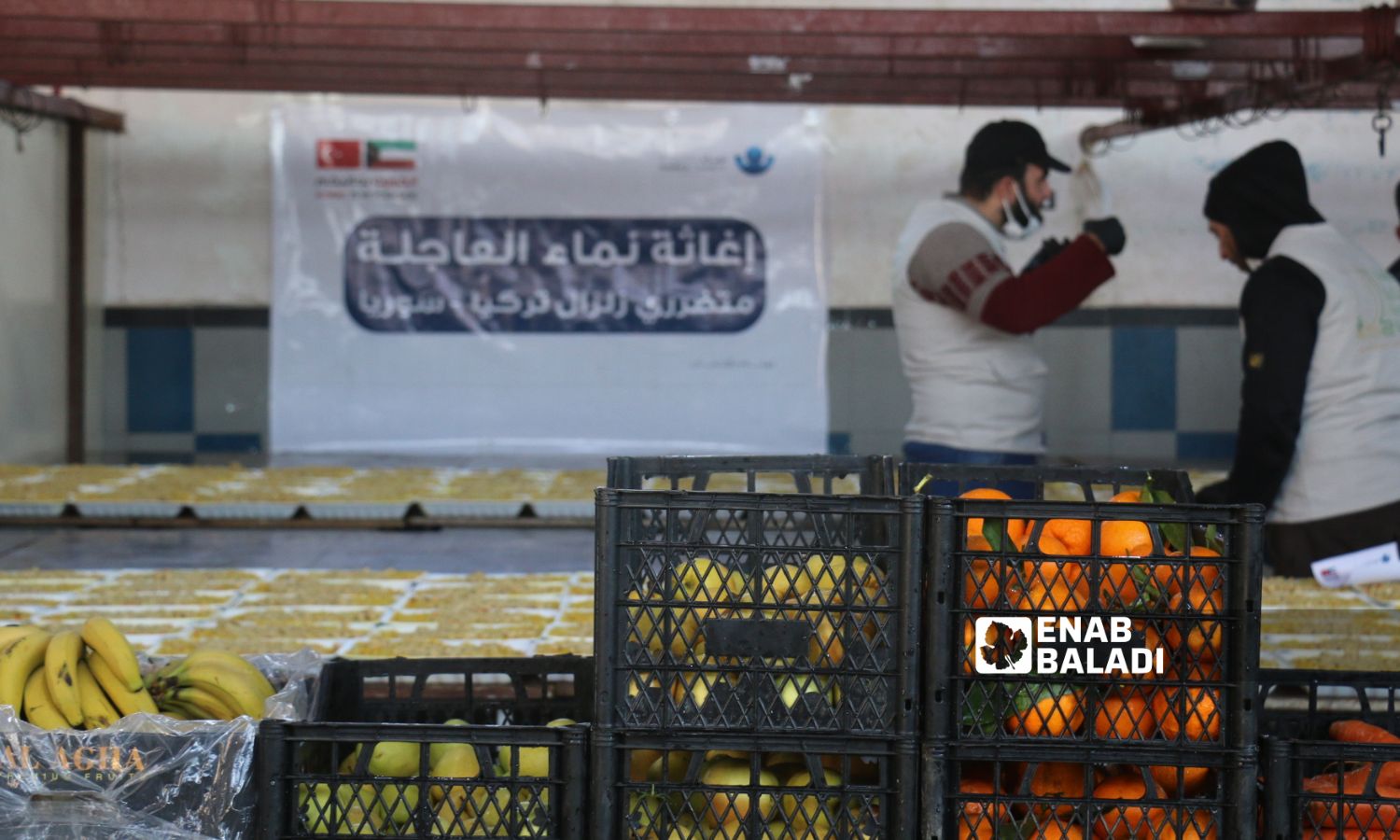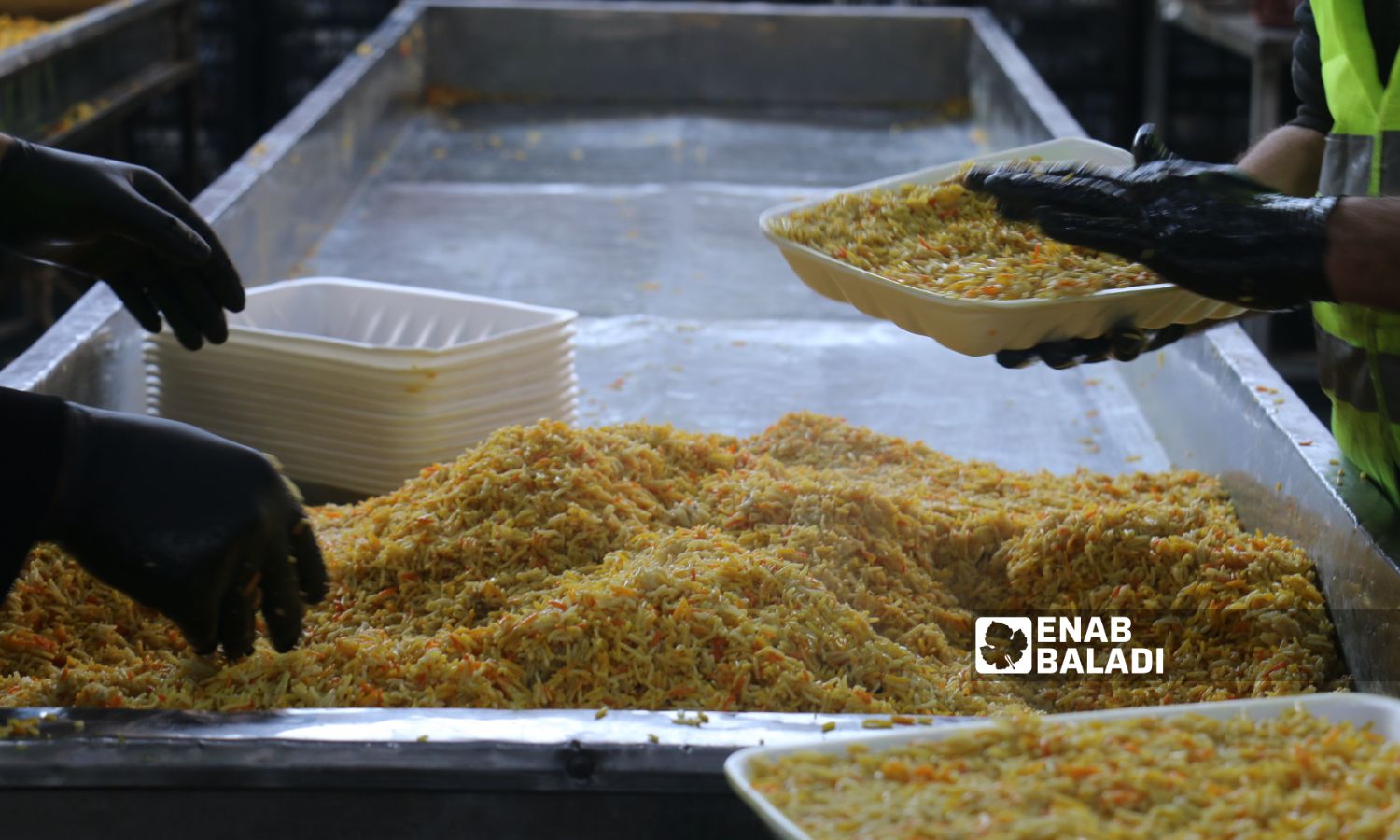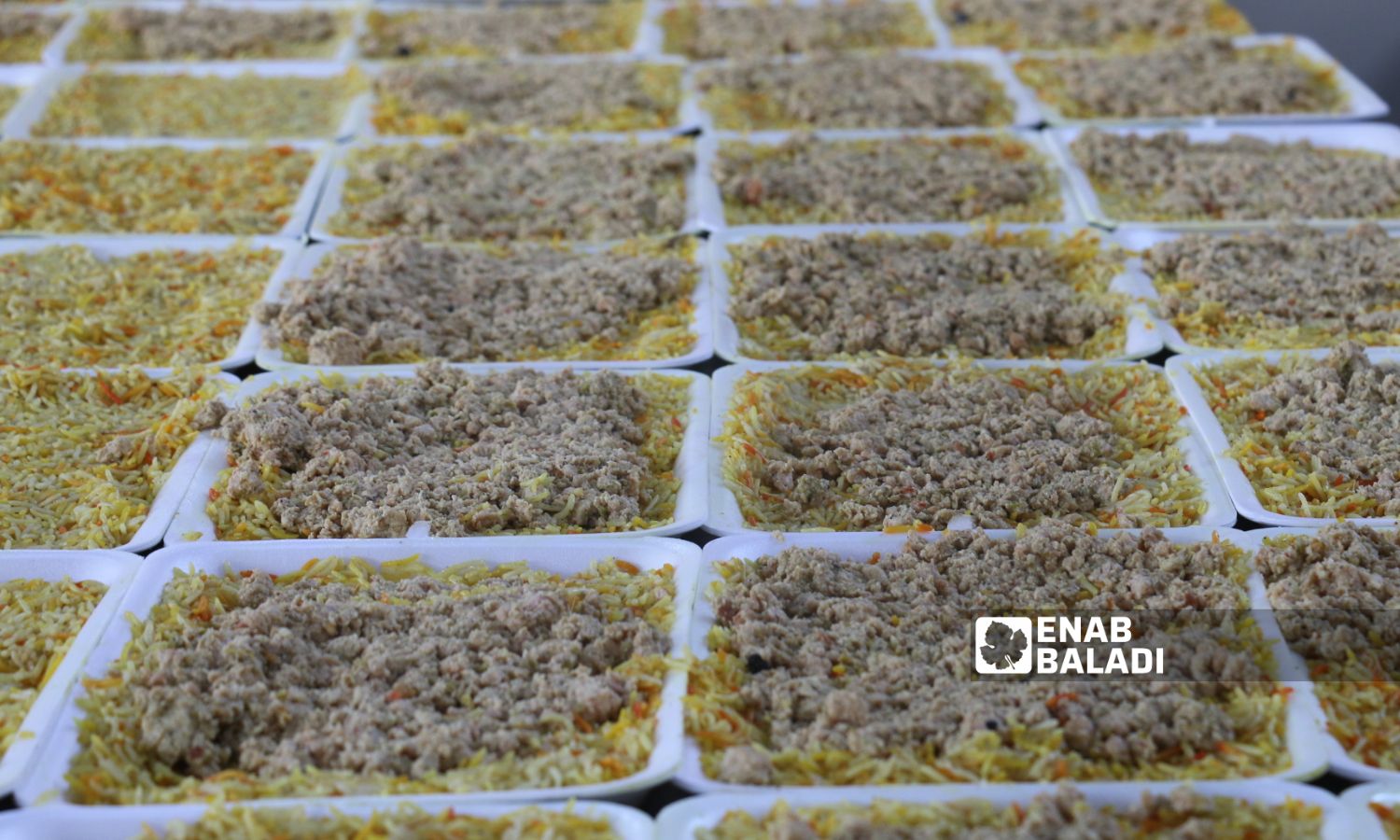



Voluntary initiatives and aid campaigns to support those affected by the earthquake in northwestern Syria continue two weeks after the earthquake struck southern Turkey and four Syrian provinces.
A devastating earthquake killed 2,274 people and injured more than 12,400 in no less than 40 cities and towns in northwestern Syria, according to the latest statistics of the Syria Civil Defense (SCD) rescue agency.
The initiatives included donations to the efforts of individuals, organizations, and local residents, which are considered temporary solutions and an emergency response against the backdrop of the earthquake, by providing food and meals to those affected by the earthquake who are sleeping on the grounds or in shelters. Some restaurants have opened their doors to receive them as well.
The field kitchen in the city of Afrin, north of Aleppo, provides meals to hundreds of affected families in the countryside of Aleppo.
The kitchen official, Ahmed Abdel Halim, told Enab Baladi that the kitchen provides free meals ranging from 2,500 to 3,000 meals per day to the people affected by the earthquake and is distributed to those affected in shelters and camps.
The meal is divided into plates of multiple sizes, some of which are sufficient for five people and others for three. The kitchen prepares rice with meat and serves bread with “ayran” (a yogurt-based beverage) or juice next to the meal.
Organizations operating in the area, including “Altaakhy,” “Taawon,” “Namaa,” and others, supervise the supply of materials for the kitchen, in addition to donations from some people.
The local councils in the countryside of Aleppo also supervised the distribution of meals to the camps housing the affected people in cooperation with organizations operating in the area, including the local council in Azaz city, which distributed meals in coordination with the “Ayadee” relief organization and “Wissal al-Rahma” association.

Workers inside a field kitchen in Afrin, north of Aleppo, preparing meals for those affected by the earthquake that struck southern Turkey and four Syrian provinces – February 14, 2023 (Enab Baladi/Dayan Junpaz)
Some restaurants opened their doors to the survivors and those affected by the earthquake as well, receiving them and providing meals and heating means, and the Internet also allowed them to communicate with their relatives.
The administrator of the “City Rose” restaurant (a restaurant that opened its doors to survivors) in the city of Idlib, Mohammad Abu Diab, told Enab Baladi that he stopped working in the restaurant and opened the halls for the people hours after the earthquake amid a state of panic and fear that afflicted them and stranded them in the streets.
He added that the restaurant’s halls are not covered with cement walls and are prefabricated ceilings, which gave some reassurance to the people, pointing out that the restaurant continues to do so until the situation stabilizes and that individual initiatives from merchants, people and some organizations continue to fund the restaurant.
The rescue operations to recover the victims from under the rubble were accompanied by initiatives to distribute meals and sandwiches to the rescue workers and the people who responded to the disaster amid a lack of equipment and machinery, with the UN claiming that there were logistical obstacles to the entry of this type of aid.
The bakeries operating in the city of Idlib witnessed a crisis and an increasing demand for bread due to the demand of individual initiatives and organizations to buy bread in large quantities to help those affected, and several bakeries were damaged in cities and towns that were affected by the earthquake damage more than others.
Mohammad Omar, accountant of the “Shams al-Madina” bakery in Idlib, told Enab Baladi that the bakery experienced a crisis during the first two days of the earthquake, and despite that, it worked 24 hours a day, non-stop to secure the people’s demands.
Omar said that some volunteer teams and organizations had bought bread in large quantities as a form of assistance to the affected families, pointing out that the bakery gives bread to other bakeries that have lost electricity.
Trucks loaded with foodstuffs, medical supplies, clothes, tents, and required materials such as clothes, blankets, canned food, tents, and bread arrived in the areas affected by the damage after donation campaigns launched by the people of neighboring cities and villages.
Some organizations and medical teams are also working to provide their services in response to the affected people, and the Civil Defense teams are working to remove the rubble of the damaged houses.
These initiatives remain a temporary and emergency response to the presence of tens of thousands of families in shelters, including facilities, institutions, and tents, as a result of the devastating earthquake that struck the region on February 6.

Meals in a field kitchen in Afrin, north of Aleppo, are provided to people affected by the earthquake that struck southern Turkey and four Syrian governorates – February 14, 2023 (Enab Baladi/Dayan Junpaz)
if you think the article contain wrong information or you have additional details Send Correction